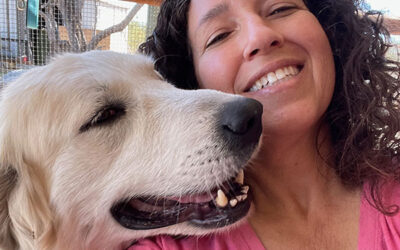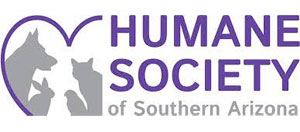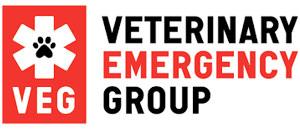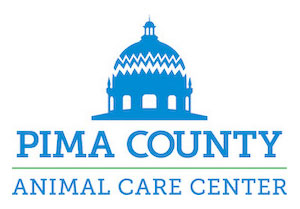Story by Brian Pettepiece Photos by Stacy Vandyke
It’s an unfortunate reality that there are a lot of homeless dogs out there. But it doesn’t have to be that way. With the work of local volunteers, dogs in need of homes all around Tucson are getting the break they deserve thanks to a network of dedicated volunteers both in Tucson and the surrounding areas.
Foster programs are all-important when it comes to finding homes for homeless dogs according to Stacy Vandyke. Vandyke is a volunteer who works with numerous shelters and rescues both in the city and the surrounding rural areas. She helps to transport dogs to and from shelters and rescues and also fosters dogs, personally fostering over 700 over the years. She described the process of finding dogs forever homes as a system of “shelter to foster to adoption”. Each of three components are important but fostering makes up a large portion of the process. Because shelters have limited space, foster homes make up the difference, giving the dog more time to find their forever home, sometimes saving their lives.
It’s important to delineate the difference between a “shelter” and a “rescue”. Shelters typically have a physical space to hold dogs, with a building and kennels, and, in the case of some larger shelters, grants or public funding. Rescues are different. They typically aren’t staffed by paid employees but volunteers who have other full-time jobs and operate their rescue out of the goodness of their hearts and their love of animals.
Here in Tucson there are a myriad of shelters and rescues doing important work such as locating homeless dogs, relocating dogs from overcrowded shelters, and placing dogs in temporary foster homes. One such organization is RAD Rescue. RAD doesn’t have a physical location, rather they are a network of people who work at the logistics of getting homeless dogs in need into foster homes.
Haley Clauges is one of three members operating RAD. They currently have a regular network of about fifteen to twenty volunteers who foster dogs that need a temporary home for a few weeks to a few months. Because there are so many animals in need, Clauges said that “we’re always networking for new fosters.” She said that even having a few extra volunteers can make a huge difference and can literally mean the difference between life and death for some dogs. Emphasizing the importance of fostering, Clauges stated that “what dogs we can save is solely dependent on if we have a foster for them or not.”
During the pandemic and shutdown, you may have heard that many shelters were emptying out of dogs. That’s good news and there were a lot of adoptions happening during that time. But according to Clauges, other factors were at play as well. She said that there aren’t actually less dogs on the streets during the pandemic. But a lot of shelters are limiting their intake during this time. With some shelters unable to accept more dogs because of staffing or limited hours, some of them have increased their outsourcing of dogs to smaller rescues. This makes the work that rescues do and fostering in general so important right now.
Fostering has so many benefits. Not only does it get the dog out of the shelter where, in the case of smaller shelters, they may not have access to adequate veterinary care or may be euthanized, but it allows the dogs’ foster caregivers to observe them and learn about any health or behavior issues they may have. That’s what makes fostering so crucial according to Bree Kishman of Hope of Deliverance, another local rescue helping dogs in the Tucson area. You can really get to know the dog and learn about any idiosyncrasies that need to be worked on, like learning if the dog is good with kids or cats or does better in a multiple or single dog home. These are things that may not be known while a dog is in a possibly chaotic shelter environment. With fostering, the personality traits of each dog can be understood and that’s important when it comes to placing dogs in their forever homes. Through foster care, the best type of home for each dog can be identified and this increases the chances of them settling in nicely into their new forever home.
Small rescues such as RAD don’t receive public funding but operate purely on donations. These donations go toward paying for medical care and food in their network of foster homes. To learn more about becoming a foster dog parent or even just to make a donation, here are just a few local organizations who are making a huge difference in dogs’ lives:
RAD Rescue – www.radrescueinc.org
The Big Mutt Network – www.thebigmuttnetwork.org – (520) 348-6100
Hope of Deliverance – hopeofdeliverance.org – (330) 647-9963













